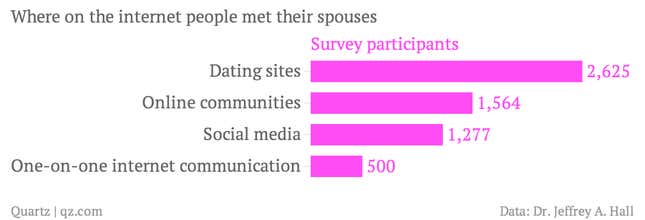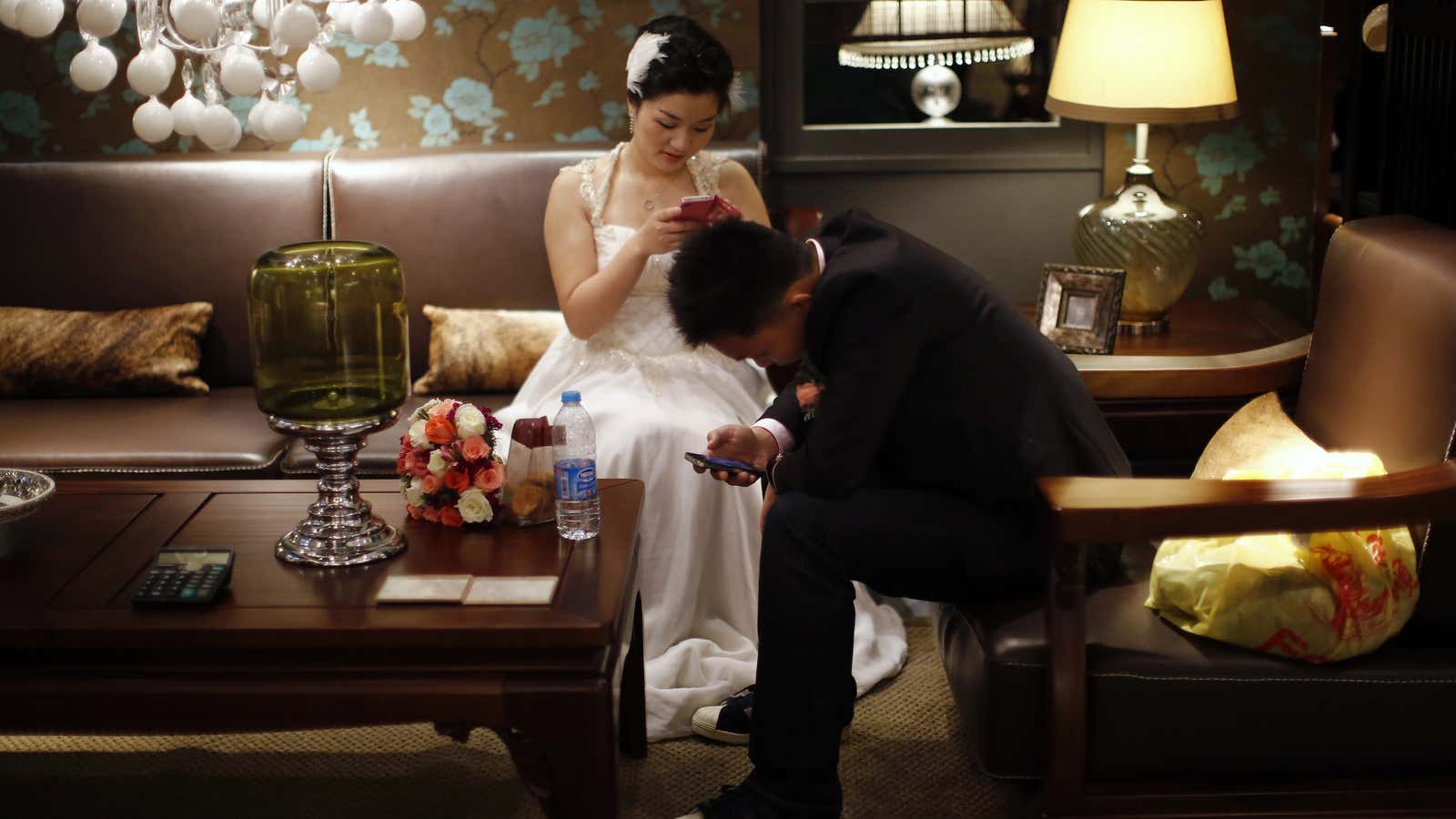It should come as no surprise that more and more people meet their spouses online. But not all of those romances start on websites that are meant for finding partners. A recent study by Jeffrey Hall, an associate professor of communication studies at University of Kansas, found that among people who met their spouse online, more than half had done so somewhere other than a dating site.
Hall used an online survey to collect data from Americans who married someone they met online between 2005 and 2012, a period during which one in three American marriages started with an online meeting of some sort.

Hall’s survey showed “online communities”—which include chatrooms, special interest websites, and multiuser fantasy worlds such as Second Life and World of Warcraft—to be the second most popular online meeting place, behind the more obvious dating sites. But while marriages between warlocks and mages declined over the seven years that Hall examined—and dating sites declined slightly too—Facebook and other social media became a more popular place to meet cute.
Who’s finding the love of their life on social media? According to Hall’s data, people who reported meeting their spouse on social media were significantly younger than those in other areas of the web and spent more hours of the week online than those who used dating websites. They were also more likely to be African American—and male. While Hall’s survey didn’t ask for sexual orientation, he suggests that gay men may use social media for dating more than women or heterosexual men.
The age discrepancy, he notes in the study, is easily explained: Younger people adopted social media more quickly, and tend to have a wider network of friends online. Presumably, this cohort spends enough time online to feel that “friends-of-friends” on Facebook are just as worthwhile romantic pursuits as “friends-of-friends” offline. Dating websites, on the other hand, are able to attract older singles who don’t use the internet as extensively, and therefore don’t have such broad online networks.
It might not be a bad thing that more and more of us are turning to social networking sites for romance. Hall’s data suggests that these marriages may actually be happier than those that start offline. But not all online courtships are created equal: Those started on “online communities” such as Second Life and World of Warcraft might be less satisfying than the others, according to Hall’s survey.
Why are those Warlocks and Mages less happily married? It might just be because those surveyed by Hall were older, and had been married longer, than those who met elsewhere on the web. And, while plenty of people are still gaming—and watching each other play—the practice of finding your one true love in a virtual world has declined along with the waning popularity of World of Warcraft and Second Life: In 2005, 32% of survey participants who’d met their spouse online had a virtual community to thank. The percentage had fallen to 17% by 2011.
